Study habits for success
![]()
Burying your head in books for hours on end isn’t always the best way to study and it can leave you feeling frustrated and demotivated – but it doesn’t have to be like that, so here are our top ten study habits for success.
- Be organised and plan – set yourself a routine for studying. Whether it’s a few hours in the morning or afternoon on certain days or a couple of hours each day, having a timetable gets you into the habit of knuckling down.
- Take breaks – the biggest mistake some students make is studying too hard. As contradictory as that sounds, there is such a thing as too much work and overloading on information can leave you in a muddle. Keep your mind fresh and take regular breaks even for just a few minutes.
- Set clear goals – it doesn’t matter what the subject is, set yourself a clear goal for each session. Dividing subjects into bite sized pieces means you can be sure about covering subjects in a clear and logical fashion – increasing the chances of it staying in your memory.
- Start with what you find hard – tackle tough topics first while your brain is still fresh and focussed. It’s tempting to start with something you find easy but you’re likely to be tired and easily distracted by the time it comes to starting a subject you’re not keen on.
- Remove distractions – we all study in different ways, some of us like listening to music or the radio while others like complete silence. Regardless of the environment you study best in, make sure it’s distraction free – switch off phones or notifications on your laptop or computer to ensure you’re not tempted to dawdle.
- Check your notes before you start – before you start, take the time to check your assignment or notes. Even if you’re confident that you know what you need to do, double checking doesn’t hurt and can save you time later on.
- Review your work – doing the work isn’t quite the same as completing the task. Check your work as you go and review it at the end. Self-assessing flags up any mistakes you might not have spotted at the time and can also highlight areas you may need extra help with.
- Use memory tools that work for you – from acronyms to making up limericks or songs, memorising information in a fun, catchy or unique way is a great way to retain facts and figures.
- Have the right equipment – keep pens, sharpened pencils, a calculator or dictionary to hand to avoid disrupting your study session.
- Ask for help – few people are brilliant at everything so never be afraid to ask for help. A study buddy or group can be a valuable source of support, even more so if you can share knowledge and pick up revision different techniques.
If you find a subject particularly tough and could benefit from a little extra help, contact us to see how we can help. With learning centres in Bury St Edmunds, Ipswich, Stowmarket, and Thetford we offer tuition in a range of subjects either in small groups or in one to one sessions.
As experienced teachers, we understand that everyone learns, studies and revises differently and we use a variety of methods, teaching tools and techniques to ensure that all our students have the chance to reach their full potential.
Last Updated on July 29, 2021
